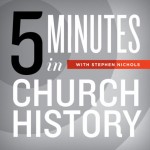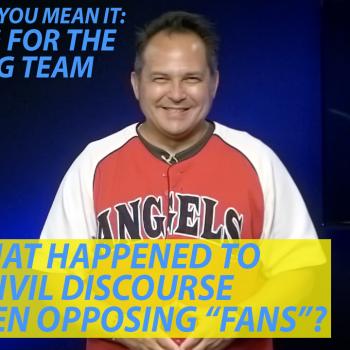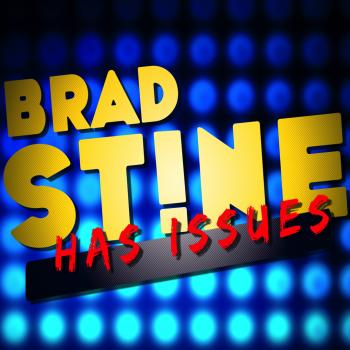
A listener is stumped by a question on logic. Another wants to know how Dr. Craig keeps all these facts straight in his head!
 Reasonable Faith Podcast: Does Logic Exist Outside of the Universe? Play Now | Play in Popup | Download
Reasonable Faith Podcast: Does Logic Exist Outside of the Universe? Play Now | Play in Popup | DownloadKEVIN HARRIS: You’re locked in to the podcast of Reasonable Faith with Dr. William Lane Craig. This is Kevin Harris. We are glad you are here. We hope that you’ll help us spread the word about Reasonable Faith. Pass it along to your friends and family. In fact, I was just thinking about how important it is that pastors and church leaders become familiar with Dr. Craig and Reasonable Faith. I mean, don’t you think so? Don’t you think your pastor and thereby your church would benefit from this material? We think so. So go to your pastor and say, Hey, I know you are busy but I’ve got a podcast I think you’ll be interested in. Go through and listen to some of the topics that Dr. William Lane Craig discusses at ReasonableFaith.org. Then follow up and interact with your pastor. Make sure that your pastor is versed in philosophy and apologetics. Maybe you want to be a part of that with one-on-one time with your pastor, or maybe even start a Reasonable Faith chapter right there in your town or in your church. So much to do, and so little time it seems! Speaking of managing your time, that is one of the things we are going to talk about today with Dr. Craig. We get questions all the time about Dr. Craig’s schedule and how he schedules out his day, time management, and things like that, as well as some other interesting topics like this one.
Hello, Dr. Craig. I’ve been having a conversation with an atheist who puts forward some objections to the kalam cosmological argument. I have some questions that I haven’t been able to answer. My friend argues that:
- We can’t know anything about the outside of the universe.
- If we can’t know anything about the outside of the universe, we cannot determine the attributes of the cause of the universe.
- Because the cause is outside of the universe . . .
- Therefore we cannot determine the attributes of the cause of the universe.
In support of premise 1 he denies that even logic can be used to talk about the outside of the universe and anything could exist there, including married bachelors. A could be not-A. 2+2=4 could be analytically false. The answer could be potato. You could imagine my quandary to not to be able to use logic on the outside of the universe. The answer might lie somewhere in our basic beliefs because we can’t use logic to prove that logic works. Please help with this. Sincerely, Richard.
DR. WILLIAM LANE CRAIG:I think what Richard illustrates so well here is the frustration and futility of arguing with an irrational person. I mean that very seriously. This friend of his is just irrational. It is very difficult to argue with someone who is this irrational. The person’s claim “we can’t know anything about outside the universe” – if he actually thinks that that is true rather than false then he is applying the laws of contradiction – the laws of logic – to this so his argument is really self-defeating. How can he affirm that logic cannot be used to talk about things external to the universe? What does it even mean to say that bachelors could be married or that 2+2=4 could be analytically false? These are simply logically incoherent claims. They cannot be true. It seems to me that therefore this person cannot assert his first statement that we cannot know anything about what is external to the universe. That statement cannot be supported by this own person and therefore we simply have no reason to agree with it.
KEVIN HARRIS: I don’t hear this, but I hear, We can’t know anything outside of the human mind. The same principle – you would have to go beyond the mind to know that you can’t . . .
DR. CRAIG:Exactly. It is so self-defeating, and yet one does hear this all the time. It is probably born out of this sort of cultic scientism that we’ve talked about in other contexts where you believe that the only source of knowledge is science, about what is interior to the universe, and you can’t know anything outside it. This is actually very unscientific in our day and age in which we talk about multiverse scenarios and spacetimes and things existing beyond the universe. This is a kind of naïve irrationality that is just very, very hard to penetrate because the person doesn’t think coherently and so makes these kinds of self-defeating assertions.
KEVIN HARRIS: One final question today:
Dr. Craig, I have read your answer on #52 question and observe in your videos “Join Me In My Study” out of which these questions are raised to my mind.
- Do you plan, prioritize, and schedule your studies and research? I am asking about all major and minor research projects or goals.
DR. CRAIG:Let’s take them one at a time. Yes, very much so. I do plan my study day. I think that prioritizing is absolutely critical. It is so critical that you understand what is important and what can be left undone. Then you will base your schedule on your priorities. Typically I devote my morning to study of my major research interest, then after lunch I will work on projects that are still academic but perhaps of a popular level rather than hard scholarly work. Finally, when it gets to be around four o’clock and my mind is fried, I’ll do my email. But I will not do it prior to that because the email is a black hole that will suck you in and use up your time if you don’t prioritize and schedule to confine it. What that means is sometimes email doesn’t get all answered in that first day. You’ve got to be single-minded about your priorities.
KEVIN HARRIS: You really resist looking at your email until five o’clock?
DR. CRAIG:Four o’clock!
KEVIN HARRIS: Some of us check our emails constantly. I guess that is what you mean about the black hole. There are a lot of complaints these days about being tethered to your phone and having to constantly check it and so on.
- Do you read books, articles, and papers systematically?
DR. CRAIG:Absolutely. I have learned to take notes on everything I read. Very early on in my scholarly career I discovered that I could not remember what I had read unless I took notes. The mind is like a sieve. If you don’t take notes, you are going to forget 90% of what you read within just a day after finishing that book or that article. So it is critical when you read to take careful notes. This is now much easier than it used to be. I used to do this longhand and then file my notes. But now with dictation features on your computer you can use that dictation feature to read aloud certain passages so as to have direct quotations or summaries of what you are reading. It is much, much easier now to do notetaking and systematic study with dictation features.
KEVIN HARRIS: Do you have an app? Dictation feature?
DR. CRAIG:It is just on my Mac.
KEVIN HARRIS: It is on your Mac, you will read out loud? You will make some notes out loud?
DR. CRAIG:Right.
KEVIN HARRIS: OK. Oh, back to number one – are you freshest in the morning? That is why you do the heavy-duty . . . ?
DR. CRAIG:Yes.
KEVIN HARRIS: OK. You’ve discovered your prime time as far as when you want to do the heaviest work.
DR. CRAIG:Right.
KEVIN HARRIS:
- How do you know which part of the book and article are relevant to read so as to avoid wasting your time?
DR. CRAIG:This is a perceptive question. One will rarely read a book from cover-to-cover. What you want to read are those parts of the book that are relevant to your current research. How do you find that out? You do it by using the table of contents and using the index in the back of the book to search for key terms. So, for example, I just got a book this past week on interlibrary loan from the Library of Congress on criminal law. As I looked at this, I thought to myself, “I can’t believe that I am reading criminal law!” I never thought I would study this subject. But in order to get into this book I was interested in strict liability and vicarious liability. So I used the index in the back to see where in the book this was discussed. Then I looked at the table of contents and I could see that the first few chapters were more general and programmatic – talking about the conditions of criminality and what goes for liability (what is called anactus reus – that is to say an evil act – conjoined with a mens rea – that is to say an evil mind). These two together make for criminal liability. So I read those chapters and took notes on them, but then much of the remainder of the book was upon specific criminal offenses like murder, manslaughter, fraud, property damage. Those weren’t philosophically relevant to my work on theory of punishment and the atonement, so I didn’t even read those.
KEVIN HARRIS:
- Why don’t you get confused with all this knowledge and information?
DR. CRAIG:I find that when I get confused is when I don’t have a lot of knowledge and information. That is what I find confusing. For example, when I started my work on God and abstract objects over a dozen years ago I had no clear understanding of the landscape of alternatives with respect to this view. For several years I felt like I was wandering in a thick fog and occasionally I would come upon a building here or there in the fog and I could enter it and explore that building and understand what it was like, but then I would exit and wander and find another. I could explore it but I couldn’t see the landscape – how these buildings were all related to each other. But after several years of study it was like the fog just began to lift and I suddenly saw clearly the landscape of alternatives available to the theist and how these different buildings which represent different views related to one another. I find that increasing clarity will often come with increased knowledge and information.
KEVIN HARRIS: He asks one more question here, and I think it is probably similar.
How do you keep your information and knowledge distinct from one another?
DR. CRAIG:I’m not sure what he means by that question except to say that I take careful notes and then I file these in different categories. So, for example, in my current work on the atonement, I am reading a lot of biblical theology including Old Testament exegesis and New Testament commentaries. I keep those files in one category. Then I have another folder which is on church historical material. Here is my reading on the church fathers, St. Anselm, Francois Turretin, Hugo Grotius, and others, and I file those things together. Then finally I’ve got a philosophical section which is philosophical reflection on the atonement. One of the subcategories there is legal philosophy. I keep the legal philosophy sequestered and separate from other philosophical issues in the atonement. By categorizing what one has read and taken notes on, it helps you over time to accumulate a body of knowledge on each of these subtopics. Then when it comes to writing them up, you access just those files and you write, for example, on how the system of sacrifice worked in the Old Testament and you just leave all that legal philosophy aside while you work on that chapter.
KEVIN HARRIS: Have you gotten in the habit of Googling things and looking at Wikipedia? Or are you strictly old school and will go to the books?
DR. CRAIG:I am a little bit embarrassed, but I’ll admit, yes, I do look at Wikipedia. I don’t take it for granted what it says, but I find that Wikipedia can be a valuable guide to certain subjects. For example, the article on vicarious liability on Wikipedia is actually very good. It gives you quite a number of examples. Some legal theorist or lawyer has obviously written this article. It is very helpful. Now, you don’t stop there. You don’t quote Wikipedia. But it can guide you into the subject and the literature and give you a kind of general understanding that will be very, very helpful when you begin to read specialist literature.
KEVIN HARRIS: I can answer this question about time management and organization very easily. Marry Jan! [laughter] Your wife, Jan, has been very instrumental in your time management and organization, hasn’t she?
DR. CRAIG:She really has. She was the one who developed for me the current system under which I work. I went to her one day and honestly I said this to her:Honey, I feel like I am losing my interest in philosophy. I just can’t study all day long from 8:30 to 6 the way I used to. I just kind of peter out after a while. She said, It is not that you are losing interest. You are just tired. What you’ve got to do is tackle the tough subjects in the morning when you are fresh. Then after lunch move to more popular level work. Then finally at the end of the day do the things that require no intelligence like proofreading, Facebook, emailing, and that sort of thing. I suddenly found my energy back, my enthusiasm back. She was a great help to me in that. She will say to me, honestly, If you’ve got a grunt job, give it to me and I’ll do it. This morning I left a little note for her. At the top of the paper it said, “Grunt job” on it. I said, Could you please print out this paper for me that I am going to read at the EPS conference. And she said, That’s what I’m here for. So I don’t have to bother with going to the trouble of printing out this paper. I am sure it will be done for me when I get home tonight.
KEVIN HARRIS: What a blessing!
DR. CRAIG:Amen.
KEVIN HARRIS: Thank you, Bill.
(This podcast is by Reasonable Faith / William Lane Craig. Discovered by Christian Podcast Central and our community — copyright is owned by the publisher, not Christian Podcast Central, and audio is streamed directly from their servers.)












